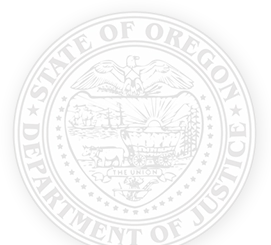
Contact tracing is important. But watch out for scammers!
Here’s how contact tracing works:
You have probably been hearing a lot about contact tracing. It is the process of identifying people who have come in contact with someone who has tested positive for COVID-19.
Contact tracers usually work for the local public health authority or the state’s public health division; and in some parts of Oregon they may work for a community-based organization. These individuals will work with an infected person to obtain the names and phone numbers for everyone the infected person has come in close contact with while they may have been infectious. Contact tracers work with these identified contacts, to let them know about the exposure and what steps to take to keep themselves and the public safe.
Here’s what contact tracers do:
If you have been identified as someone who has been in contact with an individual who has tested positive for COVID-19 you will get a phone call or a letter – not a text message – from a legitimate contact tracer. The contact tracer will talk to you about your exposure and what steps to take to keep you and the public safe, including quarantine and daily monitoring of your symptoms. The contact tracer will also ask you how you would like to receive follow up information – by phone, email or text. You will only receive emails or texts from a legitimate contact tracer if you have selected one of those contact methods. Regardless of the method you choose, legitimate contact tracers may ask for your date of birth, but they will NEVER ask you for additional personal information, like a Social Security number, bank account, or credit card number. Anyone who does is an imposter, and is trying to scam you!
And here’s what you should watch out for:
Unfortunately, there are people lurking out there who are pretending to be contact tracers, but are in fact scammers trying to take advantage of this process as an opportunity to steal your personal information. These imposters are sending emails and text messages with links to fraudulent websites. Clicking on the link may download software onto a device, giving them access to an array of your personal and financial information.
“Contact tracing is an effective tool used to help stop the further spread of COVID-19. I find it to be particularly evil for scammers to be taking advantage of this essential public health tool during these difficult times,” said Attorney General Ellen Rosenblum.
In particular:
If you have received an email or a text message that you think might be from a scammer posing as a contact tracer, do not click on any links and file a complaint online at www.oregonconsumer.gov or call 1-877-877-9392 and ask that a complaint form be mailed to you.
For more information on how to stay safe from these kinds of scams (“phishing” scams) check out our Do Not Click campaign online at https://www.doj.state.or.us/wp-content/uploads/2020/01/DOJ-Do_Not_Click-Flyer.pdf, and for more information on COVID-19 scams, visit www.oregonconsumer.gov/COVID-19.
For more information on contact tracing, and if you have any doubt about the legitimacy of someone who contacts you, visit www.healthoregon.org/contacttracing.
Please stay safe and healthy. And please cooperate with legitimate contact tracers to help keep yourself and others safe!
